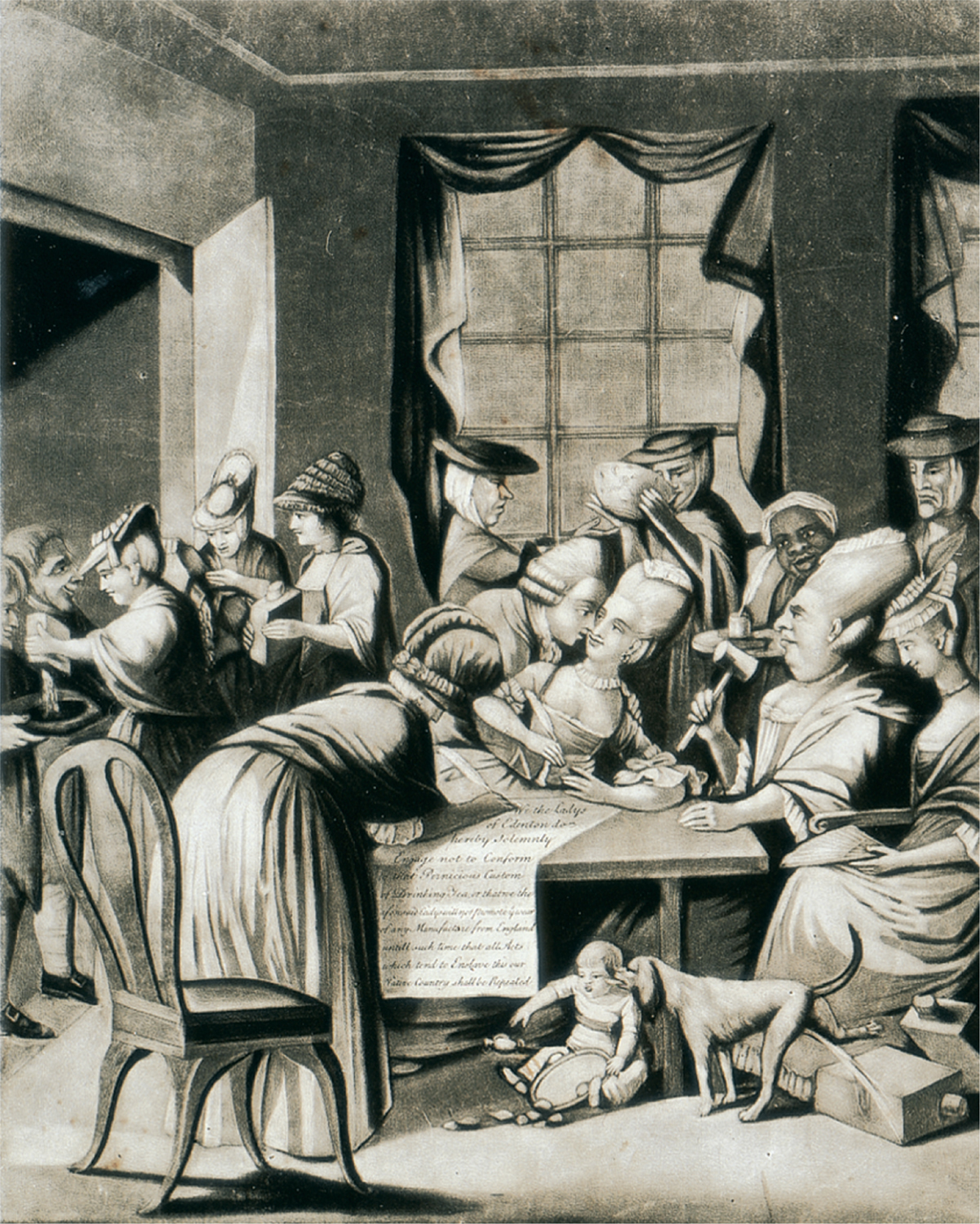Nonconsumption and the Daughters of Liberty
The Boston town meeting led the way with nonconsumption agreements calling for a boycott of all British-
Nonconsumption agreements were very hard to enforce. With the Stamp Act, there was one hated item, a stamp, and a limited number of official distributors. In contrast, an agreement to boycott all British goods required serious personal sacrifice, which not everyone was prepared to make. A more direct blow to trade came from nonimportation agreements, but getting merchants to agree to these proved more difficult, because of fears that merchants in other colonies might continue to import goods and make handsome profits. Not until late 1768 could Boston merchants agree to suspend trade through a nonimportation agreement lasting one year starting January 1, 1769. Sixty signed the agreement. New York merchants soon followed suit, as did Philadelphia and Charleston merchants in 1769.

Many of the British products specified in nonconsumption agreements were household goods traditionally under the control of the “ladies.” By 1769, male leaders in the patriot cause clearly understood that women’s cooperation in nonconsumption and home manufacture was beneficial to their cause. The Townshend duties thus provided an unparalleled opportunity for encouraging female patriotism. During the Stamp Act crisis, Sons of Liberty took to the streets in protest. During the difficulties of 1768 and 1769, the concept of Daughters of Liberty emerged to give shape to a new idea—
Homespun cloth became a prominent symbol of patriotism. A young Boston girl learning to spin called herself “a daughter of liberty,” noting that “I chuse to wear as much of our own manufactory as pocible.” In the boycott period of 1768 to 1770, newspapers reported on spinning matches, or bees, in some sixty New England towns, in which women came together in public to make yarn. Newspaper accounts variously called the spinners “Daughters of Liberty” or “Daughters of Industry.”
This surge of public spinning was related to the politics of the boycott, which infused traditional women’s work with new political purpose. But the women spinners were not equivalents of the Sons of Liberty. The Sons marched in streets, burned effigies, threatened hated officials, and celebrated anniversaries of their successes with raucous drinking in taverns. The Daughters manifested their patriotism quietly, in ways marked by piety, industry, and charity. The difference was due in part to cultural ideals of gender, which prized masculine self-
On the whole, the anti-